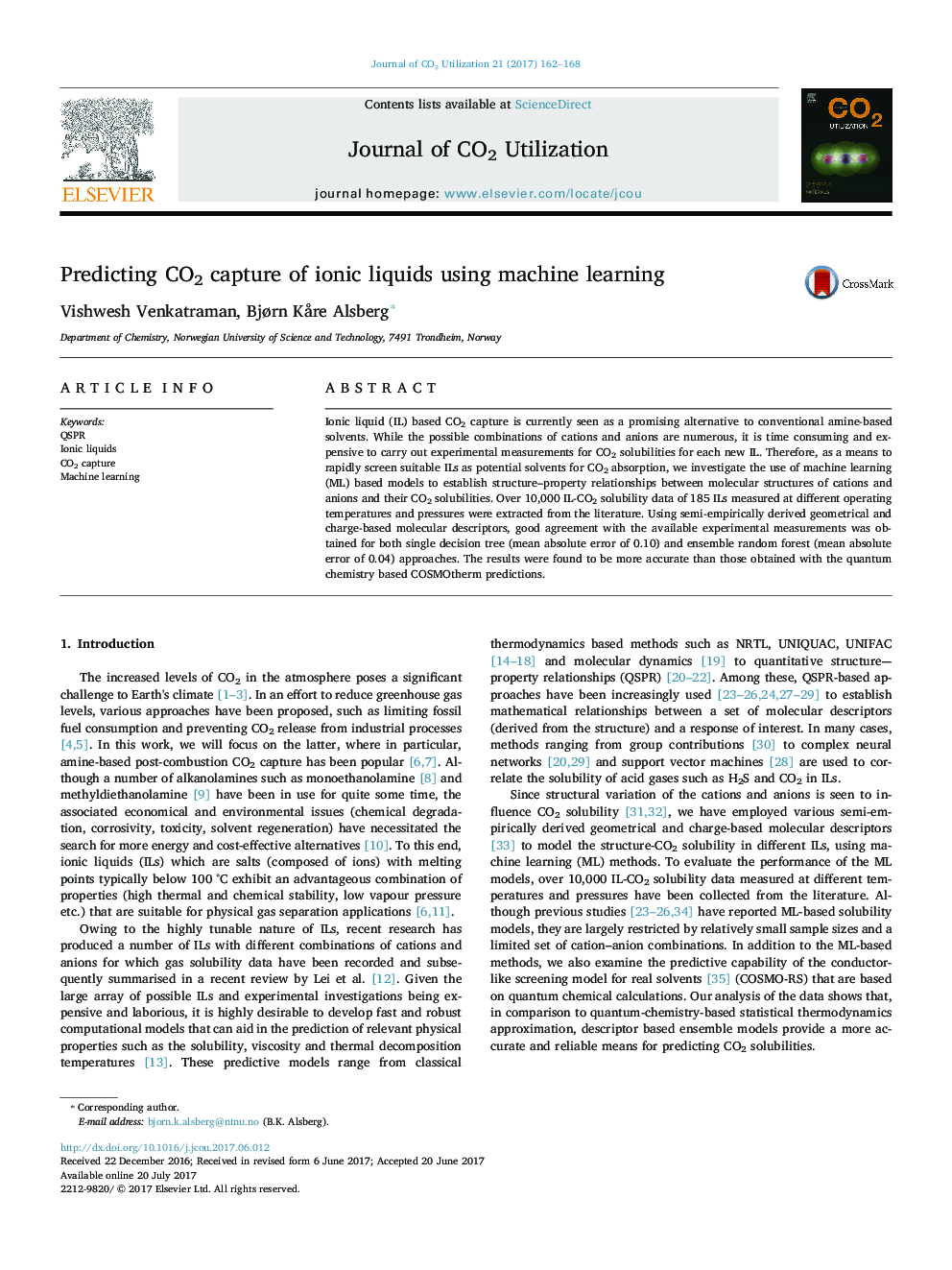| Article ID | Journal | Published Year | Pages | File Type |
|---|---|---|---|---|
| 6456040 | Journal of CO2 Utilization | 2017 | 7 Pages |
â¢Machine learning predicts the of CO2 solubilities of ionic liquids.â¢Data set was based on very diverse 185 ionic liquids (68 cations and 65 anions).â¢Semi-empirical (PM6) electronic, thermodynamic and geometrical descriptors used.â¢Descriptors relevant to intermolecular cation-anion interactions were found to be important.
Ionic liquid (IL) based CO2 capture is currently seen as a promising alternative to conventional amine-based solvents. While the possible combinations of cations and anions are numerous, it is time consuming and expensive to carry out experimental measurements for CO2 solubilities for each new IL. Therefore, as a means to rapidly screen suitable ILs as potential solvents for CO2 absorption, we investigate the use of machine learning (ML) based models to establish structure-property relationships between molecular structures of cations and anions and their CO2 solubilities. Over 10,000 IL-CO2 solubility data of 185 ILs measured at different operating temperatures and pressures were extracted from the literature. Using semi-empirically derived geometrical and charge-based molecular descriptors, good agreement with the available experimental measurements was obtained for both single decision tree (mean absolute error of 0.10) and ensemble random forest (mean absolute error of 0.04) approaches. The results were found to be more accurate than those obtained with the quantum chemistry based COSMOtherm predictions.
Graphical abstractDownload high-res image (94KB)Download full-size image
